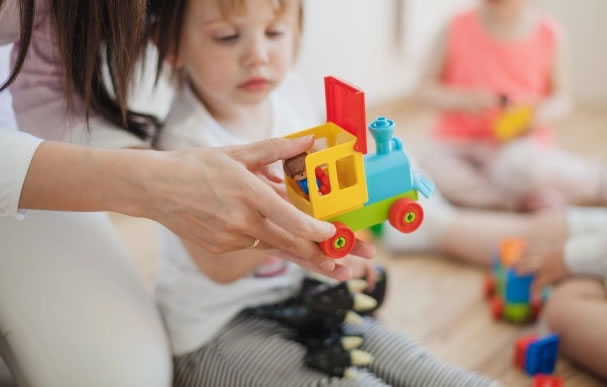The Montessori Method: Nurturing Young Minds in Daycare and Beyond
When it comes to early childhood education, the Montessori Method has gained widespread recognition for its unique approach to nurturing young minds. Originating from the work of Dr. Maria Montessori in the early 20th century, this educational philosophy emphasizes independence, freedom within limits, and a hands-on learning environment. In recent years, the Montessori Method has been implemented not only in traditional schools but also in daycare settings, providing young children with a solid foundation for their future development.
The Principles of the Montessori Method
Key components of the Montessori Method include:
- Child-Led Learning: Children are encouraged to follow their interests and set their own pace for learning.
- Hands-On Materials: The classroom is equipped with specially designed materials that promote hands-on exploration and learning.
- Mixed Age Groups: Children of different ages are grouped together, allowing younger children to learn from older peers and vice versa.
- Freedom Within Limits: While children have the freedom to choose their activities, they are guided by clear boundaries and expectations.
These principles are at the core of the Montessori daycare and are designed to foster independence, critical thinking, and a love of learning in young children.
The Benefits of Montessori Education in Daycare
Implementing the Montessori Method in daycare settings offers several advantages:
- Promotes Independence: By allowing children to make choices and decisions about their learning, the Montessori Method nurtures independence from a young age.
- Encourages Hands-On Learning: The use of hands-on materials in Montessori classrooms helps children develop motor skills and cognitive abilities through sensory exploration.
- Fosters a Love of Learning: The child-led approach to learning instills a sense of curiosity and excitement about the world, laying the groundwork for a lifelong love of learning.
- Builds Social Skills: Mixed-age groups in Montessori daycare settings provide opportunities for children to develop social skills, empathy, and collaboration.
Overall, Montessori daycare programs offer a holistic approach to early childhood education that focuses on the individual needs and interests of each child.
Extending Montessori Principles Beyond Daycare
The Montessori Method can also be applied beyond daycare settings:
- Montessori Schools: Many primary and elementary schools follow the Montessori Method, providing a seamless transition for children who have attended Montessori daycare programs.
- Home Environment: Parents can incorporate Montessori principles into the home environment by creating a space that encourages independence, exploration, and hands-on learning.
- After-School Programs: Montessori-inspired after-school programs offer children the opportunity to continue their learning in a supportive and enriching environment.
By extending Montessori principles beyond daycare, children can continue to benefit from a child-centered approach to education that nurtures their growth and development.
Challenges and Considerations
While the Montessori Method offers numerous benefits, there are some challenges and considerations to keep in mind:
- Training and Certification: Teachers in Montessori programs require specialized training and certification to effectively implement the method.
- Cultural Adaptation: The Montessori Method may need to be adapted to suit the cultural context and needs of different communities and families.
- Cost: Montessori education can be more expensive than traditional daycare and school programs, making it less accessible to some families.
- Evaluation and Assessment: Some critics argue that the Montessori Method lacks standardized assessments and evaluation tools, making it challenging to measure academic progress.
Despite these challenges, the Montessori Method continues to be a popular choice for parents seeking a child-centered approach to education that fosters independence, creativity, and a love of learning in young children.

Leave a Reply